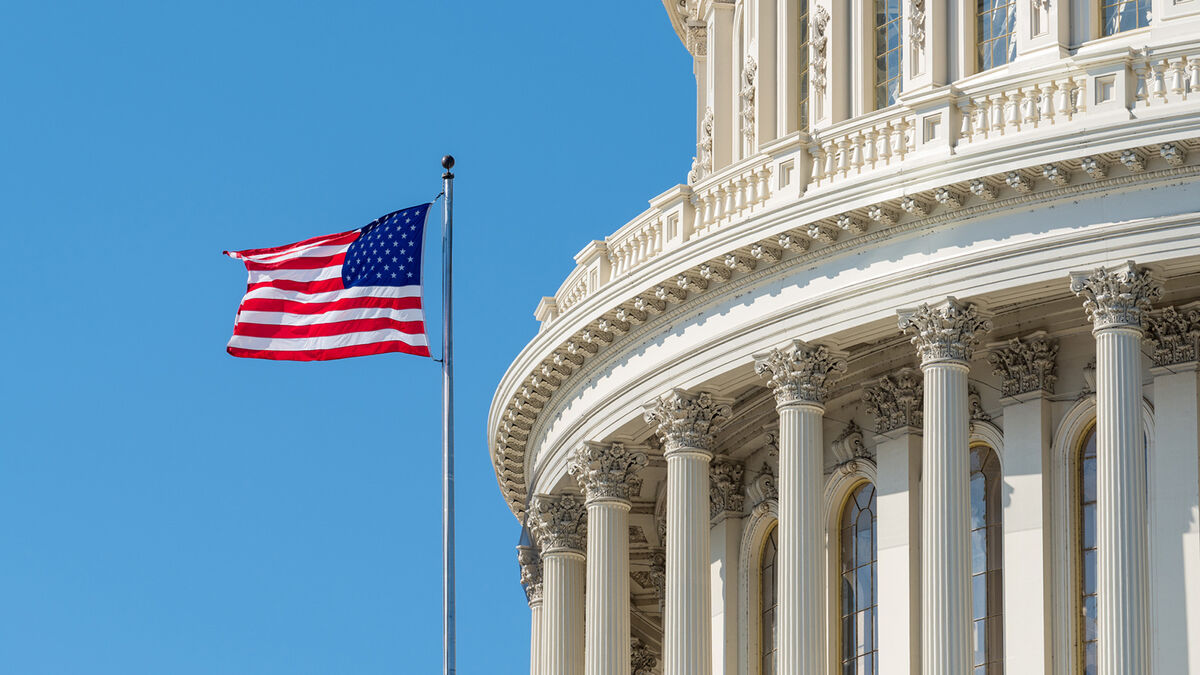
The presidential election is a buzzing time for the political world. Many times, political terms are thrown around that have you scratching your head. To keep on top of your game, learn these common political terms used in U.S. politics.
U.S. Political Terms Related to Parties
The news is full of republican this and democrat that. But what do each of those terms actually mean? Get simple definitions for U.S. political party terms.
- bipartisan - when two political parties cooperate with each other
- Constitution Party - U.S. party for dedicated to taxpayers and the Constitution
- Democratic Party - one of two the major political parties in U.S., associated with progressive policies
- G.O.P. - means Grand Old Party, it’s the Republican Party nickname
- Green Party - an environmental political party
- independent - looks at issues rather than parties
- Libertarian Party - political party focused on civil liberties
- lobby - influential group that sway elected officials
- mudslinging - insulting an opponent
- non-partisan - not biased toward a specific political group
- political party - organized group with similar political agendas
- Republican Party - one of two major U.S. political parties, called the left-wingers
U.S. Political Terms Related to Voting
Voting is a huge part of politics. In America, it’s how politicians pass bills and get into office. Delve into the murky and wonderful waters of the American voting system through these fun political terms.
- absentee voting - a way for voters to vote without going to the polls
- campaign - planned events, actions, and advertising for someone to get elected to office
- candidate - person seeking office
- caucus - meeting of party members to discuss the candidate they will support at their convention
- coattails - power a popular candidate uses to gain the support of other candidates
- constituency - voters in a defined area
- constituent - the right by a person to vote
- debate - in-person discussion of the issues by candidates
- delegate - national party representative chosen by voters to choose a candidate
- election - the process where voters cast their vote for candidates
- hype - slang term for political campaign ads
- issues - the certain problems that a candidate will promote and talk about fixing
- landslide - when a candidate wins by a huge margin
- nomination - when a party chooses their candidate to run for office
- nominee - the candidate that is chosen to run for that office
- poll - the designated place voters cast their votes at
- pollster - someone who researches public opinion of bills, laws, candidates, and other political issues
- precinct - smallest political unit of voters; divided by neighborhood
- primary - election at the state level where party members vote for their candidate; determines state delegates
- ratified - formal voter approval
- silent majority - Americans who do not publicly express their opinions but work together to make changes
- swing vote - the part of the vote that swings the election one way or another
Political Terms Related to Government
The government is full of political terms with old roots or interesting definitions. Gain an understanding of the different political terms used in government like bills, laws, and riders.
- appropriation - when a Congressional act provides federal agencies with funds for a specific reason
- bias - a leaning toward an act, law, or party; prejudice
- big government - negative term used by parties for government putting their hands where others believe they shouldn’t
- bills - a proposal that needs to go through all the areas of government to be passed to become law
- bully pulpit - official office or position that provides the occupant with the opportunity to speak an issue or inspire
- checks and balances - governmental organization that works to keep all offices and powers in check
- citizen - person recognized as a legal member of the state or nation
- democracy - government model run for the people by the people through direct or representative power
- federal - union of states or regions under one central government
- filibuster - a tactic by a Senate group to prevent a vote on a bill
- gerrymander - reorganization of districts to ensure more votes for a specific power
- grassroots - political activity where common citizens are involved or that works from the ground up
- incumbent - term for a person in office or hold office
- law - Congressional act that has been signed by the president and put into effect
- minority/majority leaders - the leaders for the Congressional house
- platform - the principles or objectives of a specific official or party
- private bill - a bill that applies to a specific individual or group (i.e. bills addressing naturalization)
- public bill - a bill that applies to all citizens
- red tape - governmental procedures and processes that slow down the process of addressing issues
- referendum - general vote on a specific issue by voters for local laws and constitutional amendments
- rhetoric - use of logical and persuasive language by politicians
- rider - an added provision to a bill or law with little relevance to it
- sponsor - the one that introduces the bill
- veto - presidential power to refuse approved legislation
- unbiased - having an objective stance
Dissecting Political Terms
Political terms can get confusing. Some go back to the beginning of the government like gerrymandering and are hard to understand. Interested in learning more political terms? Check out political jargon examples.